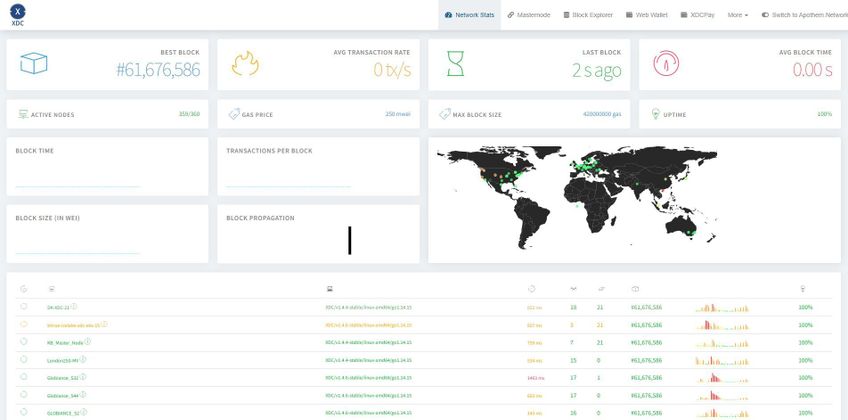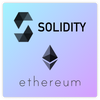We extend our sincere appreciation to @dust for sharing an insightful proposal that has generated significant discussion on this matter. Building upon Dust's recent proposal titled "Increasing the Security and Decreasing the Supply of XDC", we now present additional measures to enhance network security and sustainability through an innovative strategy for efficiently managing gas fees.
This community proposal aims to address the need for adjusting the gas fees on the XDC Network to ensure its long-term sustainability, security, and economic viability.
Reasons for Efficiently Gas Management:
Network Security: By managing gas fees, we can incentivize validators to prioritize transactions and validate blocks more efficiently, thereby enhancing the security of the network and discouraging spam or low-value transactions.
Resource Allocation: As the XDC Network continues to expand, it becomes crucial to allocate network resources effectively. Optimizing transaction fees can help regulate network congestion, ensuring that only valuable and essential transactions are processed.
Economic Sustainability: Gas fees play a vital role in the economic sustainability of the XDC Network. Adequate fees are necessary to maintain a healthy ecosystem, provide fair compensation to validators and miners, and sustain development and innovation within the network.
The XDC Network is taking proactive measures to prevent potential Distributed Denial-of-Service (DDoS) attacks by strategically adjusting gas fees. While the current gas fees on the XDC Network are set at remarkably low levels, a moderate management of fees can have a significant impact on enhancing network security and deterring potential attackers.
By adding an efficient gas management system to a reasonable level, the network discourages malicious actors from initiating DDoS attacks. These fee increases act as a deterrent, making it economically unfeasible for attackers to flood the network with a massive number of low-value or spam transactions. With higher gas fees, validators and miners are incentivized to prioritize and validate transactions more efficiently, ensuring that valuable and essential transactions are given priority over malicious activities.
The objective is to strike a balance between affordability for end-users and the level of security required to safeguard the network. The proposed fee adjustments are carefully calculated to maintain a reasonable cost per transaction while providing a strong defense against potential DDoS attacks.
By implementing these proactive measures, the XDC Network aims to preemptively mitigate the risk of DDoS attacks. This proactive approach ensures the network's stability, reliability, and uninterrupted functionality, even as it continues to gain traction and wider adoption.
Currently, transaction fees on the XDC Network are set at 0.000021 XDC (on average) or 0.0004 XDC (the maximum) per transaction. We propose two alternatives for adjustment:
Option 1: A 25x increase, raising fees to 0.000525 XDC (on average) or 0.01 XDC (the maximum) per transaction.
Option 2: A 50x increase, raising fees to 0.00105 XDC (on average) or 0.02 XDC (the maximum) per transaction.
Considering the current price of XDC is around $0.035, Option 1 would result in a cost per transaction of approximately $0.000018375 (on average) or $0.00035 (the maximum), while Option 2 would result in a cost per transaction of around $0.00003675 (on average) or $0.0007 (the maximum).
Evolutionary Step: XDC Network's Future Upgrade with EIP 1559
The XinFin XDC Network is preparing to implement EIP 1559, which will bring significant changes to XDC's fees market mechanism. EIP-1559 aims to replace the first-price auction system that determines gas fees with a new approach. Instead of a bidding system, EIP-1559 introduces the concept of a "base fee" for transactions to be included in the next block.
To illustrate the concept of the base fee, let's consider a ride-sharing service app like Uber. When you request a ride from point A to point B, the cost of the ride remains the same regardless of the driver who accepts your request. This fixed cost represents the base fee in EIP-1559. Additionally, users have the option to add a tip to their driver before getting in the car. If your tip is higher than others at that time, drivers will be motivated to pick you up over passengers without tips.
Similarly, in the XDC Network, you can attach a tip to your transactions to incentivize validators or senders (comparable to drivers) to include your transaction in the next block (equivalent to the ride). A higher tip increases the likelihood of your transaction being included in the next block and completed more quickly.
The introduction of EIP-1559 and the implementation of base fees and tips bring several benefits to the XinFin - XDC Network. Firstly, it simplifies the fee calculation process, ensuring a more predictable and stable environment for users. Users also have the flexibility to prioritize their transactions by adding a tip, allowing them to expedite their transactions if necessary. This flexibility provides greater control and responsiveness in managing transaction times.
Furthermore, EIP-1559 addresses the issue of fee volatility by automatically adjusting the base fee based on network demand. This mechanism aims to balance supply and demand, preventing extreme fluctuations in fees during periods of high network congestion.
Conclusion:
By gradually optimizing transaction fees and implementing automated burning mechanisms on the XDC Network, we can enhance network security, allocate resources efficiently, and promote economic sustainability. This proposal emphasizes the importance of community engagement, transparent decision-making processes, and ongoing evaluation to ensure successful implementation and long-term benefits for the XDC ecosystem. Together, we can strengthen the network and foster its growth and stability in the blockchain landscape.
When you’ve made up your mind, please cast your vote in the comments section: Vote = YES or NO.







Discussion (49)
Vote = YES (Option 2)
Yes
Yes! Option 2
Yes! Option 2!
Sim! Opção 2!
The community discussed transportation fees last year and it gained a lot of support. I would support this still and think it could be a great proposal to champion.
Yes
yes Option 2
Yes! Option 2
Yes option 2
Vote = Yes (Option 2)
And thanks Anil for posting this proposal!
YES
Yes (option 2)
Vote=YES
Yes! Option 2
I vote yes for option 2.
Voto:SIM (Opção 2)
Yes option 2
Yes! Option 2
Vote= yes , option 2
sim , opcao 2
Maycon
Yes (2)
Yes! Option 2!
Yes option 2
Yes, Option 2!
Vote = YES
Option = 2
Great proposal, thanks Anil !!
JBL
Option 2 - Yes
Sim
Vote=YES
This is an important and well thought through proposal with positive, far reaching implications for the ecosystem. I vote yes for option 2.
Yes! Option 2